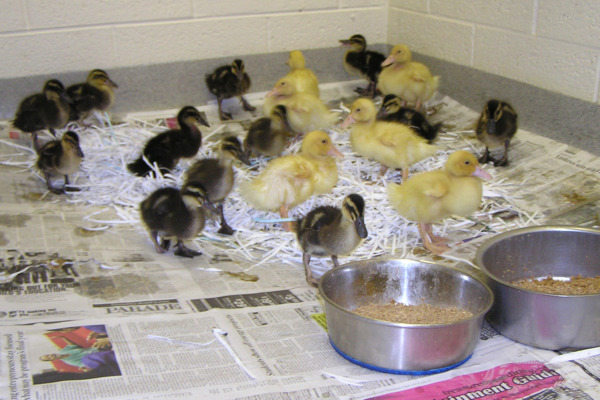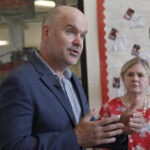
It was certainly a surprise when the staff at The Humane Society of Vero Beach and Indian River County became the sudden caretakers of 18 ducklings. The ducklings were the result of one local classroom’s hatching project. The project had ended and now the ducklings were being brought to the Humane Society for care and placement. It made many of us wonder what lessons the schoolchildren had actually learned.
Dr. Karen Davis perfectly summed up our feelings in an article she wrote about hatching projects.
“Hatching projects teach children (and teachers) that bringing a life into the world is not a grave and permanent responsibility with ultimate consequences for the life thus created, ” she wrote.
Once considered a progressive method for teaching children about the wonders of animal birth and development, incubated eggs may not receive the proper heat and humidity needed so that the babies are born healthy with the ability to thrive.
Chicks might hatch at night or on a weekend when school is closed, and once the hatchlings are born they are now left to fend for themselves without a mother. These often unwanted birds might go for hours or days without receiving food, water, or the proper care they need for survival.
And when the project is over most of these animals are ignored only to be sadly and inhumanely abandoned.
Thankfully, there are ways to teach children lessons about animal development using kinder alternatives. With advances in modern technology, options abound. Bird watching, comparative bird anatomy using illustrations, programs about bird behavior and bird calls are just a few ideas that allow children to observe birds in their natural environment without causing harm.
One the most intriguing activities I’ve come across is the virtual incubator created by the National Aviary www.aviary.org/curric/incubator.htm that allows students to care for and study the development of a virtual egg online.
This interactive Web site shows children how environmental conditions can dramatically impact the development of a chicken or duckling. The National Aviary’s Web site also has a variety of free activities and ideas related to bird behavior, anatomy and development created to inspire teachers and educate students.
So, if you are a parent, please ask your child’s teacher to consider alternatives to hatching projects. And, if you are a teacher, please call the Humane Society at (772) 388-3331 ext. 18 for a list of projects that can provide your students with humane alternatives that promote compassion and kindness to animals.
Janet Winikoff, Director of Education The Humane Society of Vero Beach and Indian River Co.6230 77th Street, Vero Beach, FL 32967(772) 388-3331 ext. 18jwinikoff@hsvb.org






